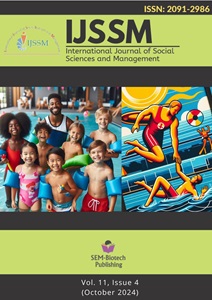Exploring the Role of Public and Private Partnerships in Educational Development of Nepal
DOI:
https://doi.org/10.3126/ijssm.v11i4.70985Keywords:
Public-private partnerships, Nepal's educational development, infrastructure; teacher training, educational qualityAbstract
The education system of Nepal has undergone significant transformation in the last few decades. The transition is observed from a primarily government-driven model to one that increasingly incorporates public-private partnerships (PPPs). This paper aims to explore the role of these partnerships in enhancing educational quality, access, and equity in Nepal. By examining case studies, policy frameworks, and outcomes of various initiatives, it is assessed the efficacy of PPPs in addressing the systemic challenges faced by the Nepali education sector. The research also provides critical insights into how these partnerships can be leveraged to achieve Sustainable Development Goal (SDG) 4: Quality Education. Additionally, this paper also explores the role of PPPs in enhancing Nepal's educational development by improving infrastructure, access to education, teacher training, and overall quality of education. Through a review of existing literature and case studies, this study assesses the effectiveness, challenges, and potential of PPPs in transforming educational landscape of Nepal.
Int. J. Soc. Sc. Manage. Vol. 11, Issue-4: 136-140.
Downloads
Downloads
Published
How to Cite
Issue
Section
License
Copyright (c) 2024 International Journal of Social Sciences and Management

This work is licensed under a Creative Commons Attribution-NonCommercial 4.0 International License.
This license enables reusers to distribute, remix, adapt, and build upon the material in any medium or format for noncommercial purposes only, and only so long as attribution is given to the creator.




